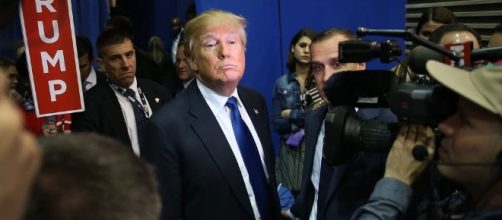By its very nature an election is a period of division. A country takes sides to decide who is best suited for a position and the debate amongst citizens becomes the mirror in which are reflected the moods and the problems of the population as a whole. These debates are part of the costs of Democracy, but the transition period shows that these divisions are nor receding as the inauguration nears, but are becoming even more marked.
Divisive presidential campaign
The recent presidential campaign won by Donald Trump came after eight years of Barak Obama’s presidency which was contested not on his politics, but on the color of his skin.
The attempts at discrediting him by the Birther movement backed by Donald Trump reminded many of racial strife in the past and the Black Lives Matters groups took these divisions even further.
The 2016 Presidential campaign then became a bitter battlefield where an unpopular candidate, Hillary Clinton was opposed by an unorthodox candidate with no government experience, Donald Trump. The lack of a true political agenda made it virtually impossible to debate on the agendas. Rather, the public debate during the campaign was based on the characters of the candidates and polarized the public more than usual.
The use of words such as “libtards” to define supporters of Clinton with the reply of that the “snowflakes” should “take off their tin foil hats” was not a sign of a healthy atmosphere in American Society and that there are differences between groups that need to be addressed by the incoming President and American politics as a whole.
This situation was then made even worse by the allegations of Russian hacking of the election campaign which further polarized the public. It became easy for opponents of Trump to label him as a “traitor” to the country and for his supporters to tell the “losers” to “grow up and accept the result”.
These developments do not bode well for the future. In fact, it is one of the major reasons that the allegations of Russian hacking must be investigated in a bipartisan manner by both Houses. The problems they raised can only be resolved in a meaningful way if the public sees both sides involved in the investigation. Any other manner would be seen simply as a cover-up, or a witch hunt.
Twitter politics
Yet the person who can and must play the biggest role in resolving these splits in the community is the one who at the present time is arguably using them for his personal advantage, Donald Trump is at it again, with his continual use of quick fire inflammatory tweets he does nothing to try to bring the country together. The Presidency of the United States is a political position and thus will always be subject to criticism and even to satire.
Unlike the head of a private enterprise company he is answerable to the public and by them judged. The right to judge and comment on the behavior of a politician is one of the fundamental rights of a modern Democracy. As such Donald Trump should have been aware of this from the very beginning as this too is one of the costs of an election on the part of the candidates.
Trump is not the first thin skinned incoming President; those of us with a few decades of experience would remember that Richard Nixon was another. But Nixon made his comments by leaks by his own staff, or in phrases made in press releases which were carefully edited to ensure nothing improper was accidentally released. This is not possible with Twitter. Once a tweet is made it cannot be undone because inevitably an incorrect tweet is copied before it is deleted.
The costs of these electoral divisions can be potentially disastrous. In terms of political unity and in a country with a large section of the population with arms, deep divisions have the potential to “inspire” disgruntled citizens to commit violent acts and thus to risk lives. Let us hope that common sense prevails and that we will not have to include deaths as part of the costs of modern politics.

